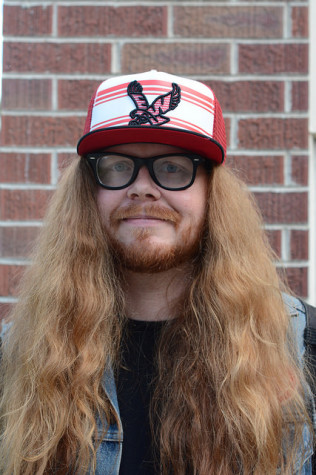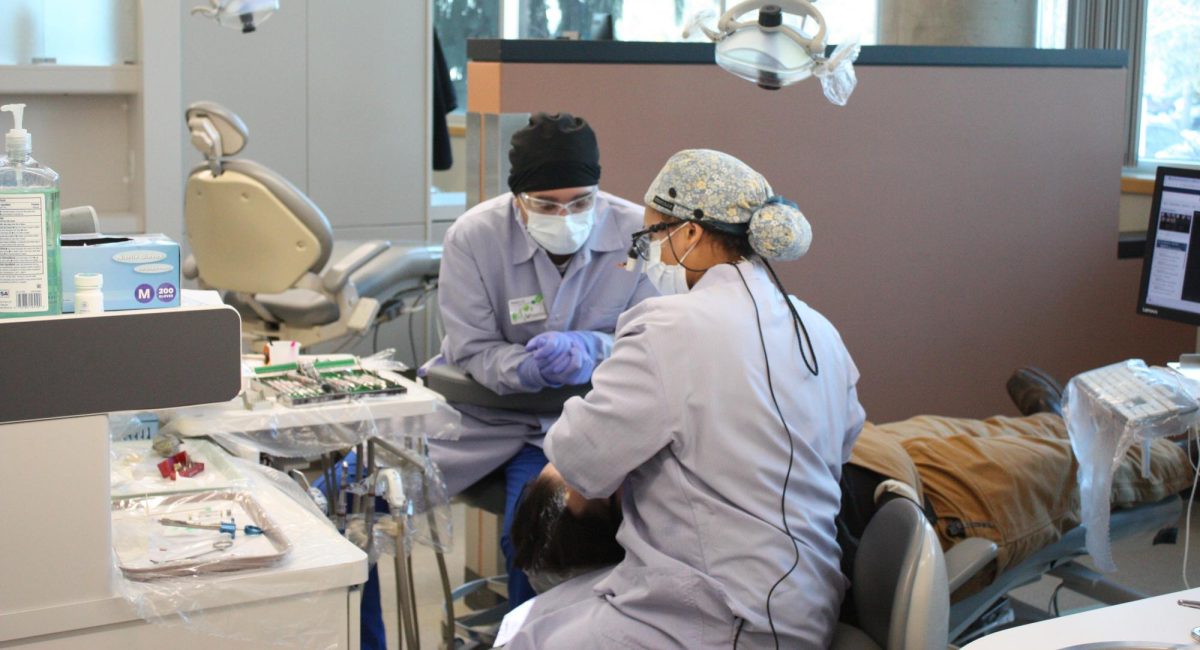Spokane House of Charity responds to city’s homeless crisis, strives to battle root causes

March 13, 2014
In downtown Spokane, at the corner of Third Avenue and Browne Street, a disheveled-looking man brandishes a shabby piece of cardboard. He flips it up in a dramatic fashion for the oncoming traffic. “Too ugly for prostitution,” it reads. His mouth is a huge grin as he waves at the passing cars in long, exaggerated motions.
A mile away at Fifth Avenue and Walnut Street, a tired looking woman holds a sign that reads, “Anything helps, God bless.” A few blocks away, under the train bridge at Second Avenue and Maple Street, a man in a worn-out wheelchair holds a sign that reads, “Homeless vet, anything helps.”
These examples are not caricatures of homelessness; they are real people, and this is their world.
Experts say it does not have to be like this — there are solutions to the problem. Those who study homelessness say eliminating the root causes of homelessness is the only way to fully eliminate the problem, and organizations like the Spokane House of Charity provide a crucial first step.
Just after lunch was served at the House of Charity, Tyrone Asterino sits at the piano in the chapel at the shelter. Asterino said he has a lot on his mind, and this is where he needs to be.
He hits singular notes on the piano, matching them with his voice. Dressed in oversized coveralls to fight the cold of winter, Asterino stares outside. The House of Charity closes between lunch and dinner, and soon he will be on the streets again.
“Homelessness is hard,” said Asterino. “Some people have memories that stick to them. You dwell on those memories because you don’t have anything to look forward to as a homeless person.”
Dr. Timothy Hilton, professor of social work at Eastern, says there are many structural roots to the widespread homelessness found in the U.S.
According to Hilton, economic inequality, poverty and the failure of our mental health care system are some of the main causes. He also said the current crisis in homelessness cannot be understood without looking at larger economic contexts. These include declining real wages for lower-skilled workers, the torn safety net of reductions in food stamps, welfare and lack of affordable housing.
Despite the vastness of the problem, Hilton is sure that something can, and should, be done about it.
“Ending homelessness requires a multi-pronged approach,” Hilton said. Increased funding for mental health and substance abuse services, expanded affordable housing and transitional housing programs, job training and placement services and living wages for lower-skilled workers are all things Hilton said would help.
Hilton said shelters need to be expanded; more shelters need to be created to fit specific populations like families, women and children. He said more programs based on housing-first policies need to be created, whereby people are offered immediate shelter as opposed to making shelter contingent on behavioral change.
For most of the homeless population, Hilton said day-to-day life is about survival, which makes creating an escape plan from homelessness nearly impossible.
This is where Jerry Schwab steps in. Schwab is the director of counseling and case management services for Catholic Charities and the House of Charity in Spokane. Like Hilton, Schwab said he believes homelessness is a problem that has a solution, which starts by simply letting people through the door.
Schwab recently met with a group of students from Eastern to tell them about his organization’s mission.
“We have a sort of a no-questions-asked, take-people-where-they’re-at policy here,” Schwab said. “Our model believes that we can help them. I mean if you just close the door and say ‘You can’t come in here,’ nothing happens.
“But miracles happen here all the time. That’s the cool thing. We see tremendous transformations here using that model, just meeting people where they’re at.”
House of Charity’s policy is to take people as they come. They accept people who are still using drugs and alcohol, while other shelters, such as Union Gospel Mission, may require a test for blood alcohol content at the door. Often times the people who need the most help are not getting any at all.
Schwab knows all about the structural causes to homelessness, but he said the House of Charity is staged to respond to the crisis. Anywhere from 200 to 300 people walk through the door each day. They get a hot meal, a place to wash their clothes and a chance to sleep in one of the 108 beds available each night.
Though Schwab sees House of Charity as crisis response, the organization does many things to address the structural roots of homelessness. They have a vocational program which teaches skills needed to get employment. They offer mental health services, as well as medical clinics provided through Providence, who oversees Sacred Heart Hospital. Some of the men in the shelter even get a permanent room in exchange for volunteer work.
Recently, Schwab spent a day in Olympia, Wash., to advocate for legislation that will help the homeless population in Spokane.
“Was it worthwhile to spend a day in Olympia talking to legislators? Yes and no,” Schwab said. “I think I made some impact. That took a huge chunk from my week that I could have used otherwise.”
According to Schwab, the end of homelessness will be based on understanding and compassion. “Do people in Spokane understand why people are homeless?” Schwab asked, “If they think they are lazy and uneducated and unworthy, then that’s why I give these talks.”
Hilton said organizations like the Spokane House of Charity, which reduces stress for people currently experiencing homelessness, are a crucial first step in the long term solution.
In the winter, Asterino said his problems are worse due to the cold weather, but the House of Charity is a big help. Having a couple of hot meals each day and a warm bed is a load off of his shoulders.
In the end, Schwab said the people of Spokane have to decide what matters to them.
“Every community has to decide who they care about,” Schwab said. “I can’t tell Spokane what to do. Spokane has to decide how they allocate their compassion.”








